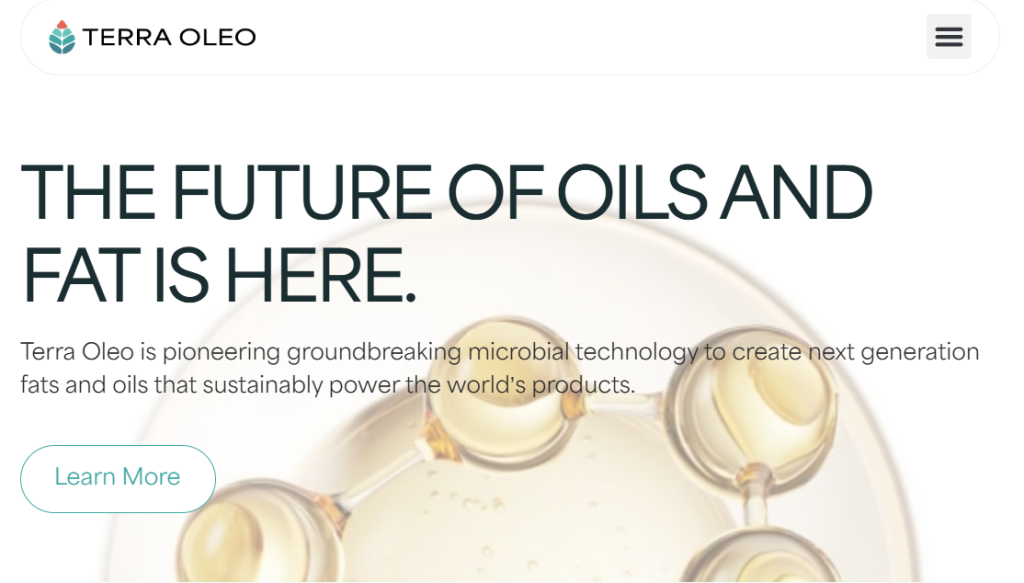Terra Oleo Raises $3.1M to Redefine Sustainable Oils and Fats Production
September 22, 2025
byFenoms Start-Ups

Terra Oleo has raised $3.1 million in funding to reinvent how fats and oils are produced across industries like personal care, cosmetics, pharmaceuticals, and food. By engineering new methods to decarbonize oil production, the company is targeting one of the most resource-heavy supply chains in the world and pushing it toward a climate-positive future.
The round attracted strong investor support, with Better Bite Ventures, ADB Ventures, elev8.vc, and The Radical Fund participating. Their backing highlights how sustainability-driven biotechnology is fast becoming one of the most attractive frontiers for capital deployment in Asia and beyond.
Why Terra Oleo Matters
Oils and fats are everywhere - in the shampoo you use, the lipstick you wear, the painkillers in your cabinet, and the snacks on your table. But their production has a massive environmental cost. Palm oil and soybean oil, two of the world’s most common fats, are linked to deforestation, greenhouse gas emissions, and biodiversity loss.
Terra Oleo’s approach is about breaking this dependency by creating oils through biotechnology rather than land-intensive farming. By doing so, they can lower the carbon footprint of fats while offering manufacturers more consistency and scalability in their supply chains. This shift could have enormous ripple effects across consumer goods and healthcare markets.
The Founders’ Vision
At the heart of Terra Oleo is Shen Ming Lee, an entrepreneur, author, and ecosystem builder deeply embedded in the agri-food tech movement. Shen has been a vocal advocate for cellular agriculture, alternative proteins, and smart farming systems, all of which play into her broader mission of building a better food future.
Her book, Hungry For Disruption, explores the coming transformations in agriculture - from genomics to waste management - that will rewire how we feed and care for the world. Terra Oleo is essentially the application of those principles at scale: using science and systems thinking to disrupt one of the world’s oldest industries.
Where Investors See the Opportunity
The $3.1 million raise signals that investors aren’t just betting on new tech - they’re betting on an industry overhaul. Oils and fats make up a $257 billion global market (Statista, 2024), and demand continues to climb as food, cosmetics, and pharmaceuticals scale production. The challenge is that conventional production is unsustainable, and climate regulations are tightening fast.
That’s where Terra Oleo fits. By creating oils that are functionally equivalent but sustainably made, the company positions itself at the sweet spot of innovation and necessity. Investors understand this isn’t just a nice-to-have - it’s a critical step for industries to meet ESG targets and adapt to new consumer expectations.
A Practical Insight for Founders
When scaling deeptech and biotech ventures, a recurring mistake founders make is waiting too long to align their R&D milestones with customer adoption curves. The temptation is to focus solely on the science until the technology is perfect. But in fast-moving markets like sustainable biotech, the real advantage comes from building commercial pathways in parallel with technical development.
This means engaging early with potential enterprise buyers - cosmetics brands, pharmaceutical companies, food conglomerates - not to sell a finished product, but to co-shape the specs and integration models that will make adoption frictionless later. Startups that treat these early corporate conversations as iterative feedback loops often find themselves with built-in demand when their first scalable batch comes online.
For a company like Terra Oleo, whose oils could apply across multiple verticals, prioritizing which vertical to commercialize first becomes as strategic as the core science. Choosing the wrong entry market can burn cash and delay traction, while the right one can act as a launchpad into broader adoption. The hidden advantage for founders is realizing that market sequencing - not just technology - often determines the scale and survival of climate-focused biotech ventures.
Industry Outlook: The Future of Sustainable Oils
The timing of Terra Oleo’s raise aligns with a broader transformation in global oils and fats markets:
- Palm oil dominance is under pressure. Palm oil currently accounts for 36% of the world’s oil production, but regulations in the EU and rising consumer pushback are forcing companies to explore alternatives.
- Biotech solutions are scaling fast. By 2030, the precision fermentation market alone is projected to surpass $36 billion (IDTechEx, 2023), with fats and oils representing a significant slice.
- Consumer preference is shifting. A recent McKinsey survey found that 66% of consumers worldwide are willing to pay more for sustainable products, and food and cosmetics are among the top categories.
- Asia-Pacific leads demand. The region consumes over 50% of the world’s vegetable oils, making Singapore an ideal hub for biotech-led disruption in this space.
This convergence of consumer pressure, regulation, and scientific readiness is why investors are doubling down on ventures like Terra Oleo.
Why This Matters Beyond Terra Oleo
The big picture isn’t just about one company raising $3.1 million - it’s about the rewiring of supply chains for a decarbonized world. Oils and fats have been historically invisible in the sustainability conversation, overshadowed by energy or transport. Yet, they quietly underpin multi-billion-dollar industries.
Terra Oleo’s raise is a signal to founders and investors alike: sometimes the most transformative opportunities lie in rethinking everyday materials that the world takes for granted.
Final Take
With its $3.1 million raise, Terra Oleo is poised to lead a new era of fats and oils production - one that’s scalable, sustainable, and globally relevant. Backed by experienced investors and led by visionary founders, the company is more than just a biotech startup; it’s part of a systemic shift toward climate-conscious supply chains.
The next decade will decide whether sustainable biotech solutions can replace entrenched industrial processes at scale. For now, Terra Oleo has positioned itself at the forefront of that movement, showing how deeptech can intersect with necessity to shape a better world.









